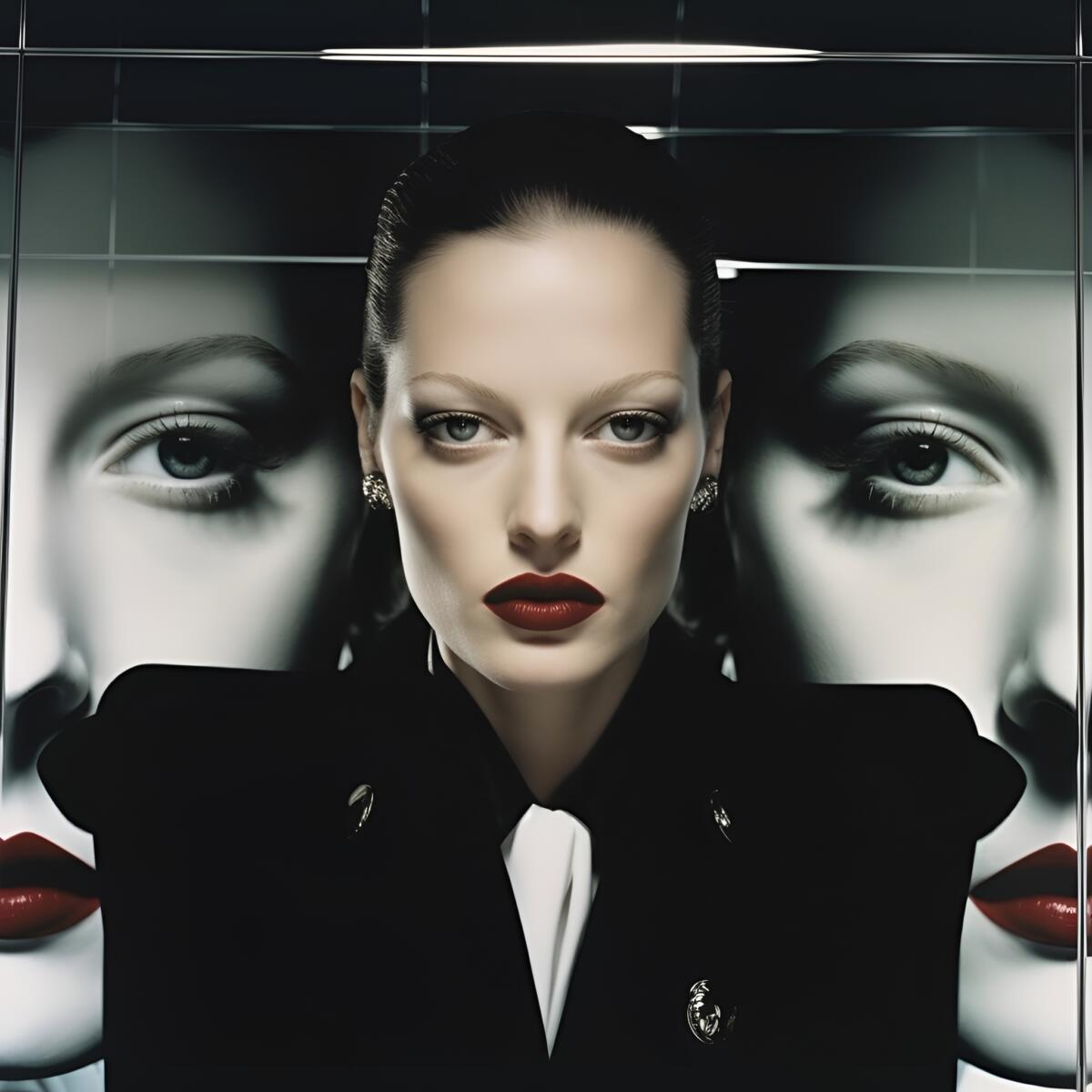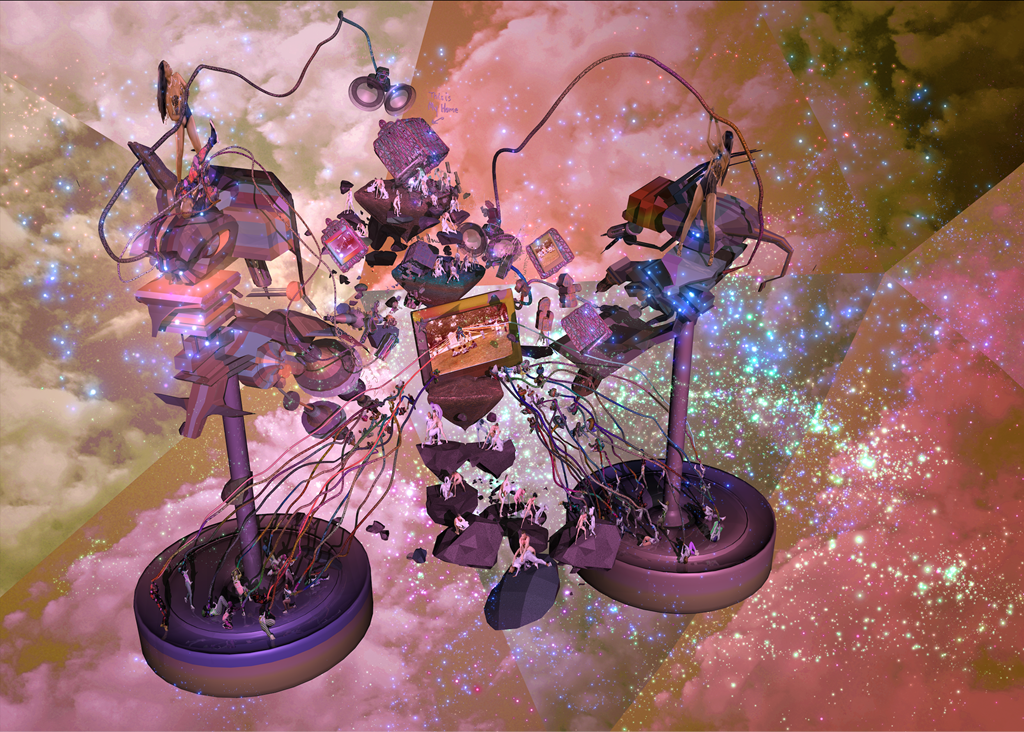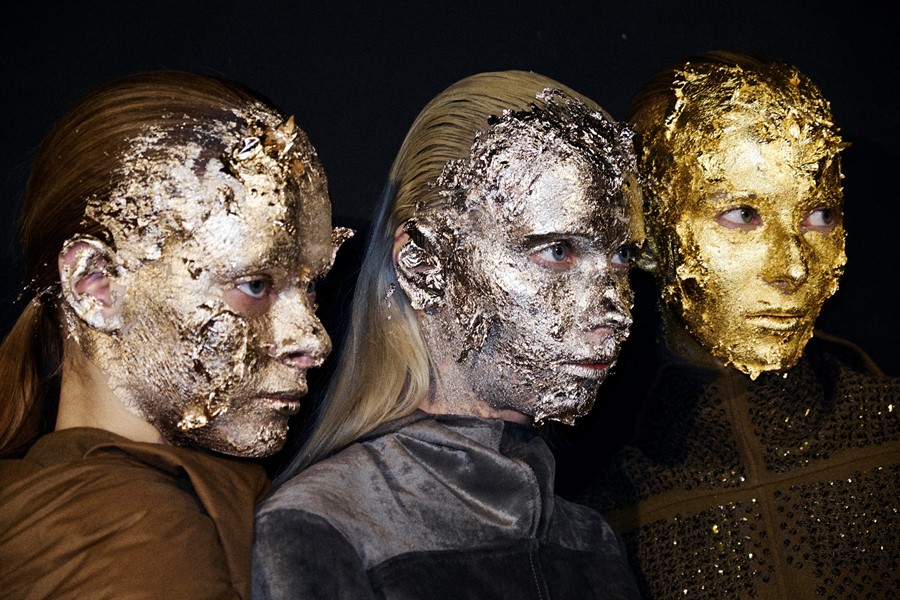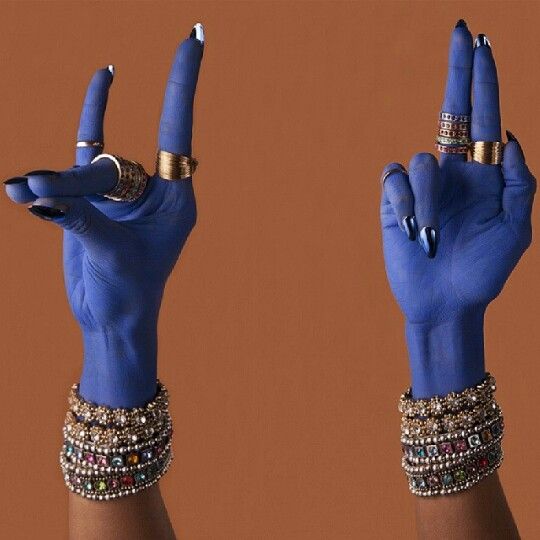Clothes Don't Make the Man - Oh Really?
The personality trapped between the tight meshes
of professional image and conformity demands
— WELCOME to a world where being yourself is
a hard-won privilege.

In 2024, clothing is a strategic tool in the arsenal of professional success. And here lies an undeniable truth: We no longer dress ourselves, we disguise ourselves for our professional alter egos.
So yes, in a capitalist society where the self equals one’s job,
it goes without saying. But in a world where humanity should prevail…
Ouch.
Let me tell you a little about this sartorial comedy,
where each suit is a role, and each accessory can be
an act of bravery, or pure madness.
Clothes Indeed Make the Man!
The idea of clothing as an expression of personality disintegrates upon contact with the workplace, where strict dress codes erode the uniqueness
of the individual.
Banker or artist, each field demands its dues in terms of conformity,
creating legions of visually indistinguishable individuals.
It’s only the subtle variations in ties and buttons that scream a desperate attempt at distinction. Clothing becomes a straitjacket — a barrier to the freedom of being oneself, in societies that are quick to proclaim freedom.
Fashion, dictated by the giants of capitalism, leaves little room for authenticity, reducing personality to a series of predetermined choices, accessible to those who can afford the luxury of wearing what they please.
Stripped in orange feathers dress for lunch, or a nice loose grey tracksuit for trading… This is freedom.
Alternatively, the sentinels of conformity, those who’ve sold their souls for a false sense of job security, become fervent enforcers of this established order.
The Fox is in the Henhouse.
They watch, they judge, and often, they smother any flickers of sartorial rebellion daring to challenge the status quo. In this theater of uniformity, originality isn’t celebrated as a treasure but viewed as a threat to social and professional order.
Well… The Sumptuary Laws, these ancestral regulations, have long dictated not only what one could wear, but also what one could own, depending on one’s social class, status, or financial means.
These laws, remnants of a world where social hierarchy was rigorously codified, aimed to maintain the established order, to prevent excessive ostentation.
In autocratic regimes, control over clothing and colors is a powerful tool for social and political regulation.
And then,totalitarian or authoritarian regimes obviously support the control of the population on appearance and clothing — a devilishly effective means of uniformization.
The prohibition of certain clothes or symbols, which might be perceived as markers of opposition or subversive identities, falls within this logic of surveillance and control.

Imagine, if you will, a dawn breaking over a city where bankers, in their penguin-like procession, parade in their black, tailored, flawless suits.
Originality? A pocket square shouting to the world, “Look! I am a rebel!”
But mind you, only in pastel pink, not fuchsia — let’s keep it business-serious, we’re in a meeting, after all.
Now, consider the banker’s antithesis: the artist. Oh, the artist!
In his expensively purchased torn jeans (for the tear itself is an art), a patterned shirt not even grandma’s drapes would envy, and the hair,
oh the hair!
A color spectrum to outshine a rainbow. The artist declares, “I defy conventions!” all the while religiously following the season’s latest
“anti-fashion” trend.
This sartorial language is governed by a set of tacitly agreed-upon codes, varying by sector: the financial industry’s suit-and-tie rigor, the tech startup’s calculated casualness, or the creative fields’ eclectic flamboyance.
The Workplace: A Costume Fair!
Enter, enter into this great fair of work where each stand,
from the bank to the art gallery, offers its own costume.
“Pick your armor for the daily fight!” the carnival barker announces.
Here a suit for social climbing, there an apron for genuine craftsmanship.
And for those who dare to defy the code?
A gentle look of reproach from the folk, reminding that yes,
the uniform is much more than just an outfit, it’s an allegiance.
Dressing for success is ultimately like playing a game of Monopoly
where your outfit dictates whether you pass Go or go directly to jail,
without collecting 20000€.
Engulfed in the carnival of standardization, we flirt dangerously with the risk
of becoming as indiscernible as Stormtroopers at a Star Wars convention, transformed into anonymous pawns on the grand chessboard of Capitalism.



